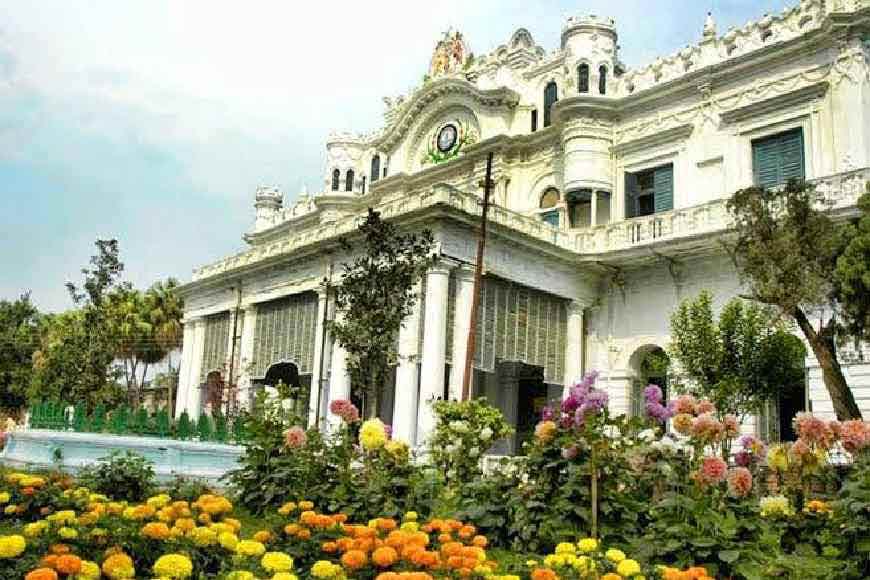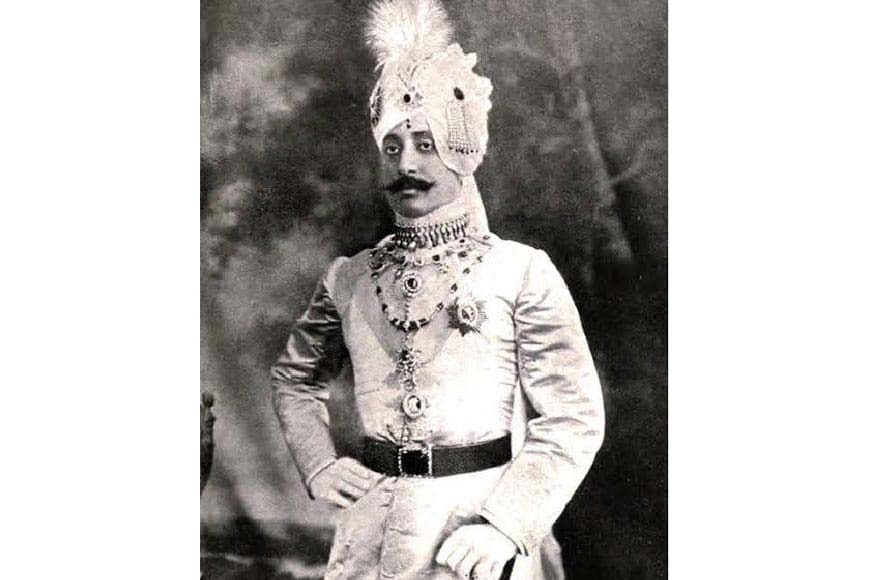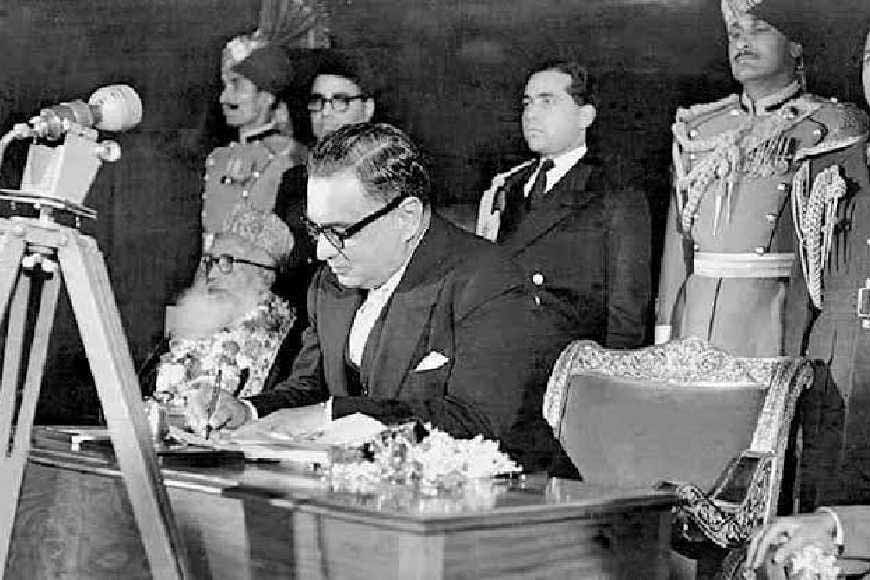Murshidabad’s Lalbagh property being claimed by Pakistan’s 1st President’s family!

CThe quiet, semirural Lalbagh of Murshidabad often cuts a story steeped in timeless wonder. With its serene Motijheel, a large eco-park with a boating lake showcasing local history, with heritage sites along the Hooghly River including former nawab governor’s mansion Wasif Ali Manzil, the ruined Ghari Ghanta fortifications, and the grand Dakshin Darja gateway, or even the imposing arch of Tripolia Gate and the magnificent 19th -century Hazarduari Palace nearby. But this very Lalbagh is now at the centre of a legal controversy with none other than Pakistan’s first President’s descendants claiming lands in the area as their own!
The Mirza family was an influential and wealthy feudal family of Bengal once upon a time, with close ties to the British monarchy. They are thought to be the direct descendants of Mir Jafar, the man who had given up Bengal’s last free Nawab to the hands of the British and helped the colonial powers rob India of its freedom. Iskander Ali Mirza was the first President of Pakistan and now his descendants claim that the lands of Lalbagh which were declared enemy property, belong to them and they have staked a claim on them by writing to the Union Ministry. Iskander Mirza’s father, Fateh Ali Mirza, belonged to the ruling house of Murshidabad and was the grandson of the first Nawab Mansur Ali Khan, who was the descendant of Mir Jafar.
Indeed, locals pointed out that the house of the first President of Pakistan, Iskander Mirza, was located in Lalbagh. But owing to the lack of initiative on the part of both central and state governments, the house was completely ruined and some new buildings and hotels came up in the area. As per historical records Iskander was born in Murshidabad city (now known as Lalbagh town) on November 13, 1899. His father, Md. Fateh Ali Mirza was the grandson of Nawab Mansur Ali Khan, the last Nawab of Bengal. But after the Partition of India, Iskander opted to live in Pakistan with his family and didn’t return to his ancestral property. Also, his father Fateh Ali Mirza, who is popularly known as Nawab Mirza in Murshidabad, turned the property into a personal estate. As a result, the house was practically not repaired by anyone after Independence.

Iskander, a great-grandson of the ‘infamous’ Nawab of Bengal Mir Jafar, served as the President of Pakistan between 1956 and 1958. He was also the last Governor General of Pakistan between 1955 and 1956. He died in 1969. As per the book Murshidabad Abong Banglar Nazim: “The place where the house of Iskander Mirza was situated (just opposite Dakshin Darwaja, only a few meters from Hazarduari Palace) was once known as Tikiyatoli. But at present, it is in ruins. The house was historically important as it was the birthplace of Pakistan’s first President and once the family of Bengal’s Nawabs resided there. The house built was spread over 4-5 bighas and there were several rooms in the mansion.”
The Nawab Mirza Estate still exists in Murshidabad town but there is no information on whether the estate sold the house of Iskander. Iskander Mirza spent 5-6 years of his childhood in Murshidabad. Later, his mother took him to Bombay for better education and he studied at the University of Bombay. He did his graduation from Royal Military Academy, Sandhurst. Iskander’s father, Nawab Mirza was in favour of Pakistan and his relative Wasif Ali Mirza wasn’t in favour of the division of India. So, this could be a reason why no one in the family was interested in preserving the home of Iskander and the property they once owned was classified as enemy property. Now relatives of Iskander Ali Mirza, have recently petitioned the Union home ministry staking claim to his property in the Bengal district that got vested with the government as enemy property in 1968.
A senior official at the Custodian of Enemy Property for India, a home ministry wing, confirmed receiving two petitions from Mirza’s Indian descendants that have questioned the rationale behind the 34 acres of prime land in Lalbagh, Murshidabad, being classified as enemy property. It is estimated that this 34-acre plot can fetch at least Rs 50 crore in the market. “They (the relatives) have claimed to be legal heirs of Fateh Ali Mirza, father of Iskander Mirza. They have given representations under Section 18 of the Enemy Property Act, 1968, for the property to be divested with them,” the government official said.
Although Iskander moved to Pakistan after Independence and became President in 1956, Fateh continued living in India. So as per the petition, as Fateh Ali lived in India, his property cannot be called enemy property. Properties left behind by Pakistani nationals were vested with the Indian government after the India-Pakistan war of 1965.

As per Rudrani Ghosh, a lawyer at Calcutta High Court: “Parliament made the 1968 Act to enable and regulate the appropriation of properties owned in India by Pakistanis and Chinese. In 2017, the Act was amended so that no civil court or authority has jurisdiction over the enemy property. The representation has to be made with the home ministry and after that one can approach the High court and go up to the Supreme Court in appeal.” As Ghosh pointed out there is already a court case that was earlier lodged by Fateh’s daughter Qamar Taz Mirza almost half a century ago and which her grandson Safdar Mirza continued fighting. More than 10 petitions are lying with the Union Ministry over the Lalbagh property.
Meanwhile around 4,344-odd vested enemy properties in Bengal, with at least 1,728 in Murshidabad including mango orchards, large ponds, and agricultural land will now be taken up by the Centre for geo-tagging. They aim to monetise these immovable assets after the survey. The exercise will be difficult since most of the immovable properties are entangled in litigation or encroachment. Some of the properties, especially prime land, have gone into the hands of land sharks.
“In the first phase, 26 encumbrance-free immovable properties will be monetised, and two of them are in Bengal,” a source said. Now it is for all to see if the famous Lalbagh goes into the hands of those who left India and stayed in Pakistan for decades.










